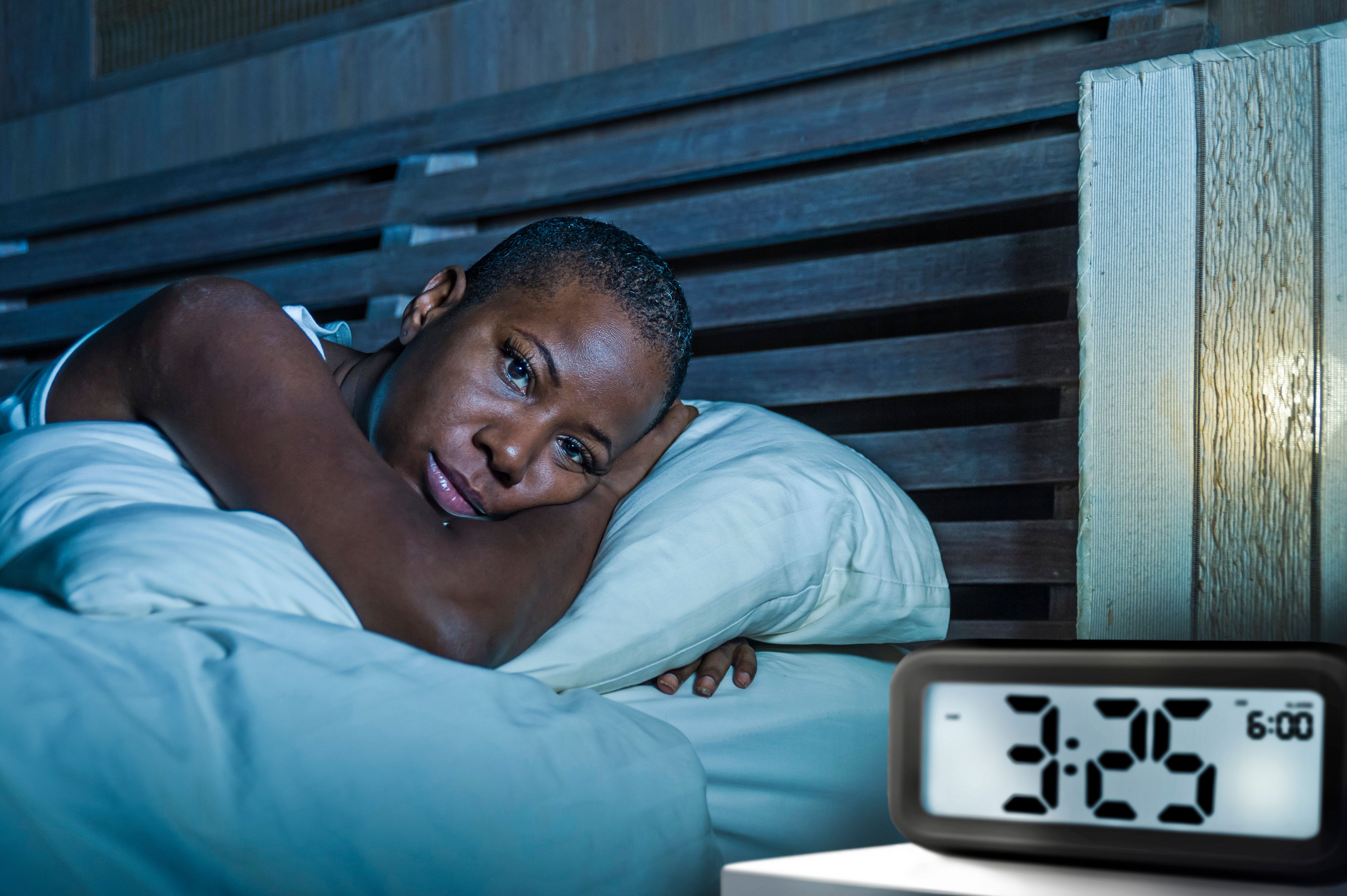- Center on Health Equity & Access
- Clinical
- Health Care Cost
- Health Care Delivery
- Insurance
- Policy
- Technology
- Value-Based Care
Meta-Analysis Investigates Individual Components of CBT for Insomnia
A meta-analysis explored the individual components of cognitive behavioral therapy for insomnia (CBT-I) and suggested that cognitive restructuring, stimulus control and sleep restrictions provide the more benefits to patients.
Cognitive behavioral therapy for insomnia (CBT-I) is best administered in-person and individuals derive the most benefit from components centered around cognitive restructuring, stimulus control, and sleep restriction, according to a recent study published in JAMA Psychiatry.
Woman Enduring Insomnia | image credit: TheVisualsYouNeed - stock.adobe.com

Insomnia can be a debilitating condition that not only interrupts one’s nightly sleep schedule but can also impair daytime functioning and contribute to an array of cognitive and physical comorbidities. Among the available treatments for insomnia, the standard nonpharmacological approach leads patients to CBT-I, a structured therapy that utilizes a plethora of behavioral, cognitive, and educational techniques.
As the authors of the present study note, previous research has aligned CBT-I with sleep quality improvements regardless of the presence of comorbidities. While CBT-I is generally linked with better sleep outcomes, there has not been sufficient evidence that breaks down the benefits associated with its singular therapeutic components. The authors highlight the importance of investigating these components to potentially maximize the treatment benefits patients receive. To address this gap, they conducted a component network meta-analysis (cNMA) to evaluate the impact of CBT-I’s various elements and delivery methods on patient outcomes.
Researchers retrospectively gathered data from PubMed, PsychInfo, and the Cochrane Central Register of Controlled Trials from the databases’ inceptions through July 2023 (1980-2023). All randomized clinical trials (RCTs) comparing forms of CBT-I to one another—or to controls—were included. Delivery methods, such as individual or group therapy, in-person contact, automated encouragement, and more were also analyzed.
In total, over 31,000 randomized participants spanning 241 trials were evaluated. Generally, these studies included middle-aged women whose Insomnia Severity Index (ISI) scores indicated moderate insomnia on average (mean ISI: 16.8). Across the 241 RTCs there were 528 study arms the most frequently covered CBT components such as cognitive restructuring (95%), sleep diary (91%), sleep hygiene education (94%), stimulus control (92%), and sleep restriction (94%). Patients underwent treatment for anywhere between 1 and 16 weeks. Hypnosis was also administered in 21% of cases.
In the meta-analysis, CBT was most frequently linked to remission in patients (OR, 3.79; 95% CI, 3.21-4.47). Next on the list were behavioral therapy (OR, 2.50; 95% CI, 1.93-3.24) and cognitive therapy (OR, 2.49; 95% CI, 1.59-3.92).
Breaking down the individual components of CBT, the meta-analysis demonstrated that patient remission was most heavily connected to elements that focused on cognitive restructuring (incidence odds ratio [IOR], 1.68; 95% CI, 1.28-2.20; P < .01), sleep restriction (IOR, 1.49; 95% CI, 1.04-2.13; P < .05), and stimulus control (IOR, 1.43; 95% CI 1.00-2.05; P < .05).
Reflecting on their results, the authors emphasize how each component of CBT-I was linked to sleep quality improvements.
“This supports the notion that behavioral therapy and cognitive therapy have different mechanisms of action,” the authors wrote. “Cognitive restructuring and third-wave components may exert their effects by changing patient perception or beliefs about what constitutes severe, frequent, or intolerable symptomatology; sleep restriction may exert its effects via the manipulation of sleep homeostasis; and stimulus control may exert its effects by attenuating sleep effort or by instituting reconditioning.”
The authors note how their findings should not be used to draw definitive conclusions about CBT-I and that future, more large-scale trial designs should be conducted to further validate the benefits of these individual components.
Reference
Furkawa Y, Sakata M, Yamamoto R, et al. Components and delivery formats of cognitive behavioral therapy for chronic insomnia in adults. AMA Psychiatry. Published online January 17, 2024. doi:10.1001/jamapsychiatry.2023.5060
